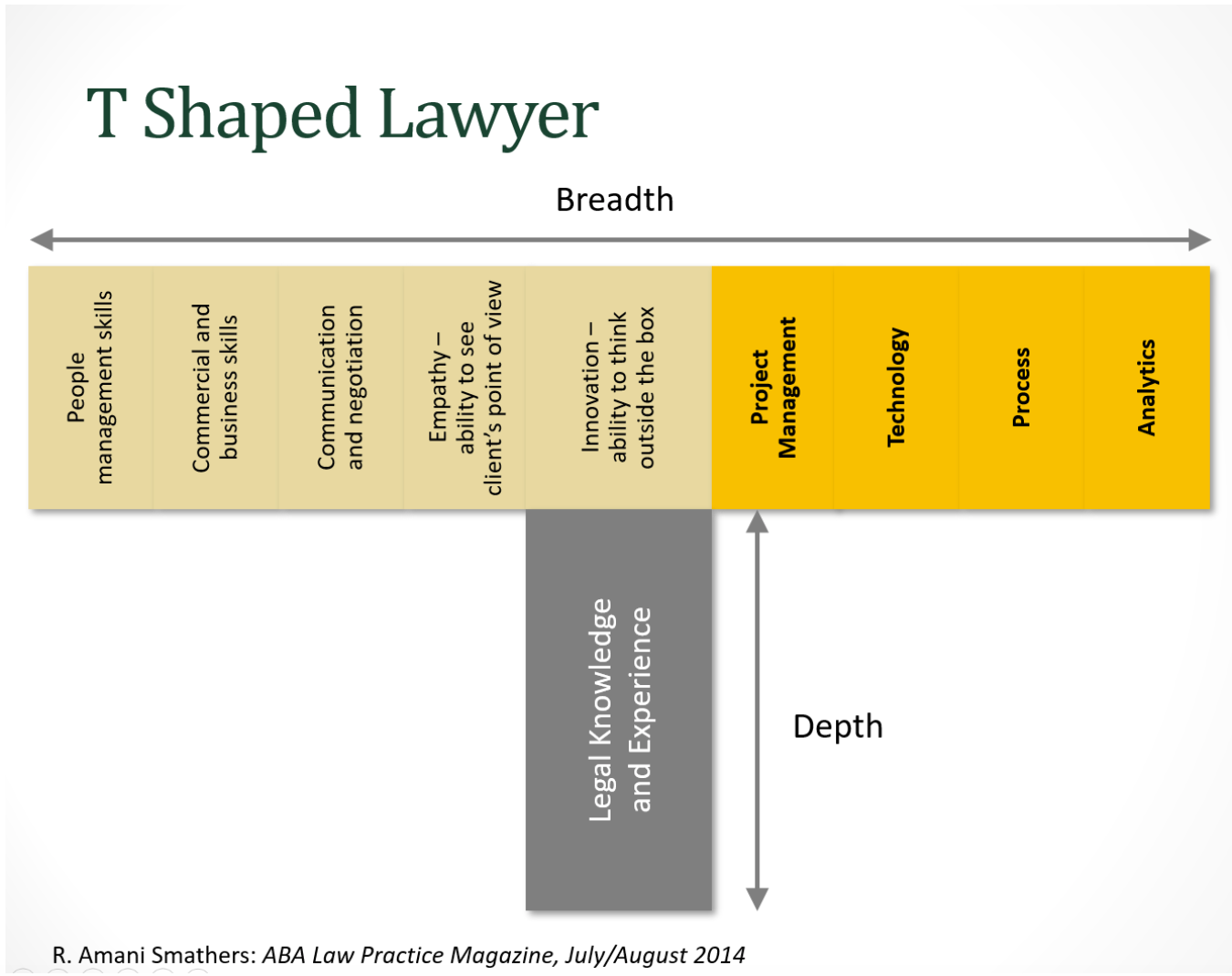A Third Career Path in Law: Elevating the Legal Profession
December 04, 2019
Elevateflex career development
For many decades a law student graduated with their degree, and if they were part of a fortunate minority of graduates, they obtained a training contract from a law firm. From there, they would work their way up to partnership level, or make the move to an in-house legal team.
Essentially, these were the two paths after law school: A traditional law firm, or an in-house team. In traditional law firms, the pace of work, the culture, the pay, and the organizational structure have not always been a great fit for some entrepreneurial young minds. Many who move into in-house teams do so in order to be closer to commercial decision-making, and to be part of a more commercial operating structure in general. In-house has a lot of advantages for lawyers, but an in-house department has only one client, and usually only one general counsel. That means that an in-house lawyer’s career may at some point reach a plateau.
The Shift to a Third Career Path
Over the past decade, in the wake of the financial crisis, we have seen the expansion of in-house teams. With this growth we have also seen a significant change within the legal profession when it comes to charting career paths for lawyers. Halebury, now an Elevate business, was one such change agent. The founders identified that many senior in-house lawyers wanted a greater variety of work, as well as the potential for higher earnings and the ability to control their own career trajectory, including the pursuit of other professional interests. Thus, a key part the model was to focus on creating an entirely new career path for experienced in-house lawyers.
This third path, offered by law companies like Elevate, has transformed the route offered by traditional law firms and in-house teams, and elevated the possibilities of the legal profession to new heights. The law company has the capacity to do as much as a law firm, as much as an in-house team, but with the backing of dedicated sales teams, lawyers with domain expertise, and technology tools developed via collaboration between legal and non-legal experts.
The Future of Work
Post-Financial Crisis, corporate legal departments are being run more like businesses. With the focus shifting to cutting costs, alternative pricing arrangements are becoming more common. The importance of data, the ever-widening scope of technology tools, and the growth of ALSPs have all contributed to the disruption of the old “law firm or in-house” model.
Many law firms are working hard to change with the times, but due to structural limitations, cannot always jump at the chance to quickly implement innovation. External capital, meanwhile, flows just as freely now as it ever has, and has filtered into the legal sector from other sources, including from the Big Four accounting firms and from legal outsourcing companies. Technology continues to play a huge role, in areas as diverse as on-demand labor platforms; contract management tools; AI, natural language processing, and other forms of automation; e-discovery technology; and dynamic platforms and services that are changing access to justice.
In addition, anyone, whether they are looking for full-time work, part-time work, or a more flexible role, can find a home at a law company. Businesses such as Axiom and Halebury represent that first generation of “flexible legal resourcing” companies that built their business model around a workforce that wanted to do things differently.
What does it all mean?
The T-Shaped Lawyer
The law company represents a new way of lawyering, bringing in new skillsets, new viewpoints, and new ways of conducting business. This is good news, both for graduates and for lawyers and other legal professionals who have diverse skillsets and are looking for new career challenges and opportunities. The market now operates on too many dimensions to rely solely on the law firm system, and the market moves too fast for in-house departments to develop and implement everything they need to stay current and resolve matters. The law company is well placed to adapt due to its ability to attract unique multidisciplinary talents.
Elevate has developed a program to train and develop this new kind of multidisciplinary lawyer. A “T-Shaped lawyer” can move outside of the strict delivery of law and into operations, knowledge management, project management, or tech development, adding efficiency and creating real value within legal and commercial teams, and also facilitating cross-operational understanding of service delivery for legal customers. It is the most unique, versatile career proposition within the legal profession.

Blazing The Law Company Path
Elevate is expanding. People are joining because they want to work full-time not just as lawyers, but as project managers, legal technologists, CLOs while also being exposed to different types of projects. The unique opportunities at a law company like Elevate make it possible for lawyers to use their legal skills, but also expand their other skillsets in order to transition into other roles. If you are a law graduate, a contract or technology specialist, or a senior lawyer, and you’re looking to explore opportunities at Elevate or one of our group companies, contact recruitment@elevate.com. We are always interested in people just beginning their careers, and those with established legal careers who are looking for a new, alternative career path.
Back to Expertise
 Janvi Patel
Janvi Patel